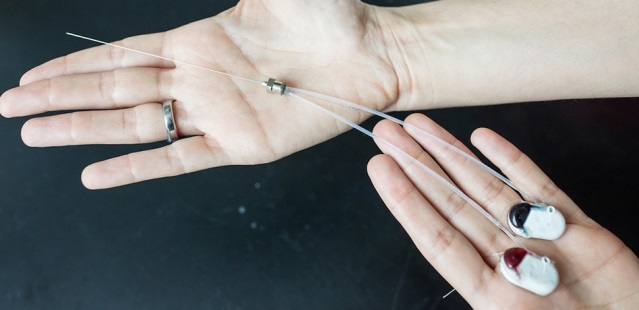
MIT researchers have developed a miniaturized cannula that uses a needle as thin as a human hair to deliver medicine to brain regions as small as 1 cubic millimetre.
Michael Cima, MIT professor of Engineering and senior author of the paper, states that the whole idea is to treat small portions of the brain, rather than the entire brain.
“The brain is so structurally complex, new accurate ways to deliver drugs or related therapeutic agents locally are urgently needed,” said Ann Graybriel, an MIT Institute Professor and a member of MIT’s McGovern Institute for Brain Research.
The device consists of tubes with diameters of about 30 micrometres and lengths of up to 10 centimetres contained inside a stainless steel needle with a diameter of about 150 microns.
Testing their device on rats, researchers connected the miniaturized cannulas to small pumps and showcased the ability to deliver tiny doses (hundreds of nanolitres) into the rats brain. In an experiment, researchers delivered a drug called muscimol to a region of the brain that controls movement and were able to induce symptoms similar to Parkinson’s disease and affect the rat’s motor function. The researchers were also able to halt the parkinsonian behavior by delivering a dose of saline.
Researchers assert that the miniaturized cannula has the potential to easily and effectively deliver potential new treatments for behavioural neurological disorders such as addiction and obsessive compulsive disorder in human beings.
“This study provides proof-of-concept experiments, in large animal models, that a small, miniaturized device can be safely implanted in the brain and provide miniaturized control of the electrical activity and function of single neurons or small groups of neurons. The impact of this could be significant in focal diseases of the brain, such as Parkinson’s disease,” said Antonio Chiocca, neurosurgeon-in-chief and chairman of the Department of Neurosurgery at Brigham and Women’s Hospital.
To learn more about the miniaturized cannula, click the link below.
http://news.mit.edu/2018/ultrathin-needle-can-deliver-drugs-directly-brain-0124





